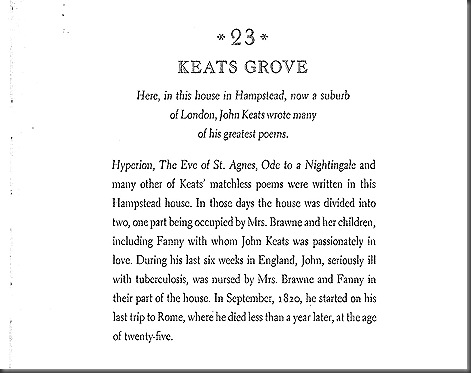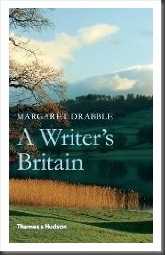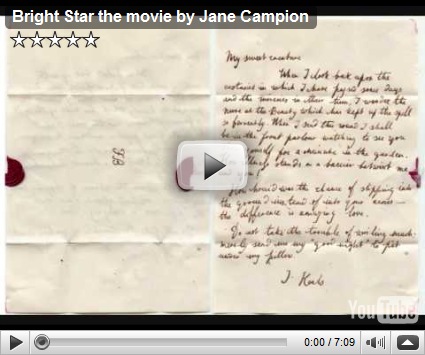I don’t know what the rest of the world was doing on Saturday night but Brian and I beat a trail to Cineworld, Bolton to see Bright Star, Jane Campion’s much vaunted bio-pic of John Keats and his love for Fanny Brawne.
“Bright star, would I were stedfast as thou art--
Not in lone splendour hung aloft the night
And watching, with eternal lids apart,
Like nature's patient, sleepless Eremite,
The moving waters at their priestlike task
Of pure ablution round earth's human shores,
Or gazing on the new soft-fallen mask
Of snow upon the mountains and the moors--
No--yet still stedfast, still unchangeable,
Pillow'd upon my fair love's ripening breast,
To feel for ever its soft fall and swell,
Awake for ever in a sweet unrest,
Still, still to hear her tender-taken breath,
And so live ever--or else swoon to death”.
I was very interested to see the film, having had a deep emotional attachment to Keats’s best-known verse since my mid-teens when – like many of you out there - I could quote vast chunks of Ode To Autumn, La Belle Dame Sans Merci, etc by heart.
But herein lies the trouble with this exquisitely shot, beautifully costumed and delightfully acted movie: Campion has behaved like a lovelorn adolescent over her own creation, making it so interminably slow and effetely sentimental that there were moments during the 119 minutes running-time when I found a “drowsy numbness pain(ed) my sense, as though of hemlock I had drunk …”
I confess not to have previously known Bright Star – said to be Keats’s last sonnet and composed on board ship off the Dorset coast at Lulworth, on his way to Italy, where he died. But his sonnet to Fanny – recited in part during the movie – used to be among my party-pieces.
I had first came across it in a gorgeous book, Literary England, published by Random House, New York in 1944 as the development of a picture essay which had appeared in Life Magazine the previous year. Most of the fabulous monochrome photographs are by David E Scherman, the accompanying text is written by Richard Wilcox while the preface is penned by Christopher Morley.
The editors also used a less successful – umm ‘ballad’ - by Keats, Robin Hood as an adjunct to a picture of a splendid oak in Sherwood Forest.
The volume had been given to my mother by a GI boyfriend whom she had met while he was stationed in Bournemouth. He autographed the book as below …
You will agree possibly that Irving Cohen was no Keats – or Picasso! - but that his sentiments are sweetly enduring!

I suggest that Literary England contrasts very well with British novelist, Margaret Drabble’s A Writer’s Britain. Re-published in September, it offers a serious look at how Britain’s finest writers have been so inspired by the landscape that they have helped to give generations of readers a particular image of the countryside they depict. This is also a lovely ‘coffee table’ book in content and style and should you think the jacket of the original edition looks somewhat lopsided it’s because it’s been on my shelves for so long!

While I’m boasting horribly, I must tell you of my own peculiarly personal attachment to the Drabble family – although they are blissfully unaware of it!

When I lived in Sheffield during the late 60s I attended High Storrs Grammar School. There, before the school went ‘co-ed’ and ‘comprehensive’ at a swoop, ‘Mrs Drabble’, aunt to Margaret Drabble and Antonia Byatt, ruled the English Department with a rod of iron. Sadly (for me) she concentrated on intelligent and clever pupils so I was never taught by her. However, she was responsible for inviting Margaret to talk to us senior girls about her then latest novel.
My most vivid memory of her otherwise is of her sailing the school corridors, apparently stern behind, her magnificent bosom swaying before her like the prow of a majestic galleon. I’d love to think that she, along with the wonderful people who did teach me English - ‘Mrs Smith’ ‘Mrs Allison’ and ‘Mr Brown’ - are all still living and enjoying the pleasure of reading the books they helped me to understand in so much depth. My eternal thanks to them all.
- This piece first appeared on blogcritics.org.
Technorati Tags: John Keats,Fanny Brawne,Jane Campion,Bright Star,Literary England,A Writer's Britain,Cineworld,Bolton,Irving Cohen,High Storrs Grammar School,Sheffield,Margaret Drabble,Antonia Byatt,Mrs Drabble,Mrs Smith,Mrs Allison,Mr Brown
msniw



No comments:
Post a Comment